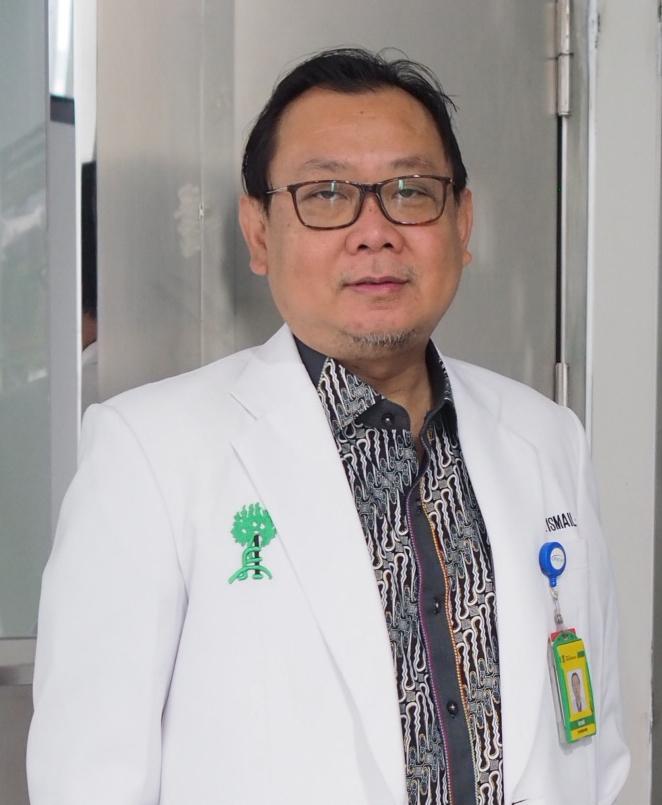Durham, NC – Critically ill COVID-19 patients treated with non-altered stem cells from umbilical cord connective tissue were more than twice as likely to survive as those who did not have the treatment, according to a study published today in STEM CELLS Translational Medicine.
The clinical trial, carried out at four hospitals in Jakarta, Indonesia, also showed that administering the treatment to COVID-19 patients with an added chronic health condition such as diabetes, hypertension or kidney disease increased their survival more than fourfold.
All 40 patients who took part in the double-blind, controlled, randomized study were adults in intensive care who had been intubated due to COVID-19-induced pneumonia. Half were given intravenous infusions containing umbilical mesenchymal stromal cells, or stem cells derived from the connective tissue of a human birth cord, and half were given infusions without them.
The survival rate of those receiving the stem cells was 2.5 times higher and climbed even more – 4.5 times – in the COVID-19 patients who had other chronic health conditions, said Ismail Hadisoebroto Dilogo, professor of medicine at Cipto Mangunkusumo Central Hospital-Universitas Indonesia and research team member.
The stem cell infusion also was found to be safe and well-tolerated with no life-threatening complications or acute allergic reactions in seven days of post-infusion monitoring, he said.
Previous clinical trials have shown that treating COVID-19 pneumonia patients with stem cells from umbilical cord connective tissue may help them survive and recover more quickly, but the Indonesian study is the first to treat intubated, critically ill COVID-19 pneumonia patients with a naive, or non-genetically manipulated, form of the stem cells.
“Unlike other studies, our trial used stem cells obtained through explants from actual umbilical cord tissue and we did not manipulate them to exclude ACE2, a cellular protein thought to be an entry point for COVID-19,” Dilogo said.
Some research suggests that one of the main causes of acute respiratory distress in COVID-19 patients is “cytokine storm,” a condition in which infection prompts the body’s immune system to flood the bloodstream with inflammatory proteins.
“The exact cause of cytokine storm is still unknown, but our study indicates that the presence of non-manipulated umbilical cord stromal stem cells improves patient survival by modulating the immune system toward an anti-inflammatory immune state,” Dilogo said.
Since there is no cure for COVID-19, supportive care has been the only help available for patients who are critically ill with the virus.
“Although our study focused on a small number of patients, we think this experimental treatment could potentially lead to an effective adjuvant therapy for COVID-19 patients in intensive care who do not respond to conventional supportive treatment,” he said.
Dilogo’s research team launched the clinical trial last year after the COVID-19 occupancy rate in Jakarta’s intensive care units climbed to 80 percent and the mortality rate of critically ill COVID-19 pneumonia patients in the ICUs reached 87 percent.
“This study, which assessed the potential therapeutic effect of human umbilical-cord mesenchymal stem cells on critically-ill COVID-19 patients, provides promising results that could inform a potential treatment to increase survival rates,” said Anthony Atala, M.D., Editor-in-Chief of STEM CELLS Translational Medicine and Director of the Wake Forest Institute for Regenerative Medicine. “Having additional potential therapies, such as MSCs, could be highly beneficial for these patients.”
###
The full article, “Umbilical Cord Mesenchymal Stromal Cells as Critical COVID-19 Adjuvant Therapy: A Randomized Controlled Trial” can be accessed at https:/
About STEM CELLS Translational Medicine: STEM CELLS Translational Medicine (SCTM), co-published by AlphaMed Press and Wiley, is a monthly peer-reviewed publication dedicated to significantly advancing the clinical utilization of stem cell molecular and cellular biology. By bridging stem cell research and clinical trials, SCTM will help move applications of these critical investigations closer to accepted best practices. SCTM is the official journal partner of Regenerative Medicine Foundation.
About AlphaMed Press: Established in 1983, AlphaMed Press with offices in Durham, NC, San Francisco, CA, and Belfast, Northern Ireland, publishes two other internationally renowned peer-reviewed journals: STEM CELLS® (http://www.
About Wiley: Wiley, a global company, helps people and organizations develop the skills and knowledge they need to succeed. Our online scientific, technical, medical and scholarly journals, combined with our digital learning, assessment and certification solutions, help universities, learned societies, businesses, governments and individuals increase the academic and professional impact of their work. For more than 200 years, we have delivered consistent performance to our stakeholders. The company’s website can be accessed at http://www.
About Regenerative Medicine Foundation (RMF): The non-profit Regenerative Medicine Foundation fosters strategic collaborations to accelerate the development of regenerative medicine to improve health and deliver cures. RMF pursues its mission by producing its flagship World Stem Cell Summit, honouring leaders through the Stem Cell and Regenerative Medicine Action Awards, and promoting educational initiatives.
Media Contact
Communications Department
[email protected]
Related Journal Article
http://dx.





